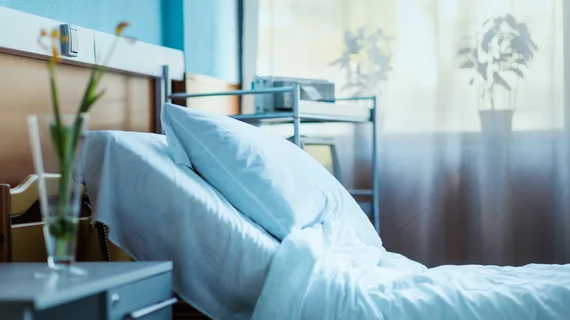Physicians estimate return to normal in August 2021
It will be more than a year for the U.S. healthcare industry to return to normal, according to a new estimate from InCrowd. Physicians expect the new normal to be sometime around August 2021, once a vaccine for the coronavirus has been distributed.
That’s twice as long as previously thought, according to InCrowd, which surveyed frontline physicians treating COVID-19 patients for the fifth time.
“Physicians’ new, 14-month expectation for a return to normal in the US.. is similar to what we recently observed with our high-need patient data,” Daniel S. Fitzgerald, CEO and president of InCrowd, said in a statement. “There seems to be an acceptance of a new normal––at least until there’s a vaccine.”
Fewer frontline physicians also believe the U.S. can flatten the curve of COVID-19 infections––24% believed it could be done in May compared to 30% in April.
Fortunately, the fifth wave of InCrowd’s data showed improvements in the healthcare fight against COVID-19, including higher rates of testing and lower caseloads. Namely, the May data showed testing was at its highest since InCrowd started tracking COVID-19, and the percentage of confirmed or suspected COVID-19 patients dropped from 21% in April to 13% in May. Another 43% of physicians said their facilities had gotten better at treating the virus, with lower mortality rates. Routine appointment cancellations were also down to just half of patients, compared to 73% in April.
However, just 19% of physicians said the U.S. is taking appropriate action to deal with the pandemic. Physicians are also bearing the brunt of the burdens of the pandemic, isolating themselves from family members and friends to protect them from potential infection.
“Unfortunately, we’re also seeing the toll this is taking on those on the frontlines, with 20% reporting that their mental health has seriously suffered and 35% still concerned over job security due to COVID-19,” Fitzgerald said. “We’ll continue to monitor this strain on treating physicians.”
One respondent noted, “I have lived apart from my family for 5 months with the exception of coming home just a few times. I have not kissed my kids or husband in these months.”
Physicians did see some improvement month over month, with personal and family safety concerns falling 20 percentage points each from April to May.

